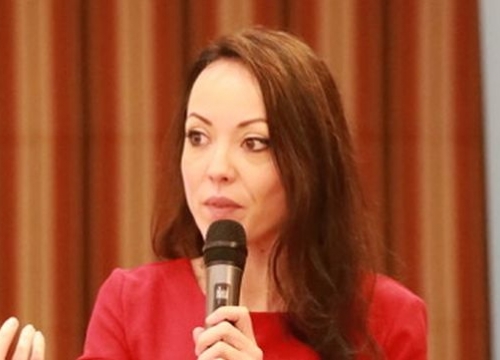LLM in International Humanitarian Law and Human Rights: What our Alumni Say
10 December 2019
Jelena Plamenac is an international humanitarian lawyer with over 10 years’ experience in practicing humanitarian and human rights law in international criminal justice systems and humanitarian organizations. She is specialised in providing legal advice and building capacity of international organizations, governments and civil society to implement and enforce international humanitarian law (IHL) in their work.
Jelena currently serves as a manager of Diakonia's Lebanon IHL Resource Desk. Prior to joining Diakonia in November 2017, she spent six years at the International Criminal Court (ICC) Office of the Prosecutor where she was responsible for the legal analysis of alleged violations of IHL and human rights in situations under the Prosecutor’s preliminary examination. These situations included Afghanistan, Georgia, Iraq/UK, Mali, Nigeria, and Ukraine. During her time at the ICC, she was a member of the working groups on the Prosecutor’s Policy on Sexual and Gender-Based Crimes and Policy on Children. Jelena also worked at the Office of the Prosecutor of the International Criminal Tribunal for the former Yugoslavia for several years on genocide trial cases.
Jelena holds a PhD degree in law from the University of Geneva.
Why did you Choose the LLM at the Geneva Academy?
At the time when I decided to specialize in the field of IHL in 2005, the Geneva Academy was a global pioneer in higher IHL education with the only LLM of that kind, to my knowledge. Having successfully completed most of the International Committee of the Red Cross events for academia as an undergraduate student at the Belgrade University, including a series of national and regional moot court competitions, the Geneva Academy’s LLM programme was the most logical next step in my education. By making this life decision, as Joseph Campbell says, I followed my bliss.
What are the Strengths of the Programme?
The programme is a unique learning space for students to gain complete knowledge of IHL by following a comprehensive and multidisciplinary syllabus. It is designed to equip students not only with practical skills to apply the law, but also to think critically and construct complex legal argumentation on contemporary challenges of armed conflicts.
How was Teaching?
I felt truly privileged to receive the training from professors who are among the greatest minds of international law today. The teaching method was highly engaging and required from us to prepare in advance for each class so that we can discuss and analyse case studies together with professors. I found this to be the most efficient way of learning IHL and getting into a habit of constant reading and expanding in the knowledge.
Your Best Memories of the Programme?
Endless joy, intellectual adventure and fun time that I spent with my classmates from all over the world. We created a beautiful community of friends and mutual support to keep up with the intense learning pace of the programme. I am sure that a large portion of my success at exams was thanks to this connection.
We nourish this solidarity and undivided support to each other on our professional paths to this very day.
What Did it Bring to your Career?
As a fresh young graduate of the Geneva Academy, I stepped into the world of international criminal justice with a solid foundation and confidence in my knowledge to accurately apply the law and produce thorough legal research and analysis. I was fully equipped to start my career and in particular to successfully compete on a demanding job market. This strong start and the feeling of trust in myself paved the success in my professional career and allowed me to evolve as a practitioner of meaningful service to the international community, as I intended.
Would you Recommend It?
To every person who wants to reach excellence and become a highly competent humanitarian lawyer, the Geneva Academy is for you.








